Benghazi: The Insecure Crossroad of Oil, Mercenaries and Jihadists
There are events going on in Africa that are quite devastating for people living there, although the world is currently focused on Ukraine and another attempt to create a failed state. For example, on the last day of April 2014, 34 percent of the shares in Heritage Oil were sold to Sheikh Hamad bin Jassim al-Thani, the former prime minister of Qatar, by Tony Buckingham. Mr. Buckingham and his friends have become quite rich from the wars in Iraq and Libya due to their ownership of oil fields, provision of private security to war zones, and creative business transactions.
Immediately after the sale of the shares of Heritage Oil, for example, the value of these shares rose by 23 percent. How such market accidents happen is beyond the logic of mere writers, but it will be recalled that a similar kind of market joy happened when Heritage Oil “discovered” its product in Iraq straight after the second Gulf War. Somebody from Heritage Oil leaked information to Genels directors Mehmet Sepel, Murat Ozgul and Levent Akca, who bought shares of the company before the oil find was officially announced. Fortunately they were prosecuted for insider dealing.
Returning to the more recent Heritage Oil deal. On its own, there is nothing remarkable in buying and selling companies. The timing of this sale, however, produced a remarkable coincidence. One of the areas in which Heritage Oil has interests is in the failed state of Libya, or to be more precise: Benghazi. Less than a week after Heritage Oil changed hands, the security headquarters in Benghazi were attacked yet again, this time killing nine people and wounding 24. The group blamed for this attack by the Libyan government is Ansar al-Shariah, which was also blamed for the September 2012 attack on the same security headquarters that killed United States Ambassador Christopher Stevens together with three of his staff members.
Ansar al-Shariah spokesperson Mohammad Ali al-Zahawi denies that the group had any involvement in the 2012 attack. If the attackers on May 2, 2014 were Ansar al-Shariah, they were well-funded by some source, because they put up a fierce battle against the security forces in Benghazi, and this cannot be done without modern weaponry. Ansar al-Shariah oppose Liberals in Benghazi and claim to have overthrown Muammar Gaddafi, which would make them NATO allies rather than enemies.
Before Buckingham became an oil magnate, he was implicated in mercenary activities throughout Africa. He has a past full of work on behalf of governments to overthrow other governments, and his days as a mercenary may be considered checkered, though he claims they are over. One of his business partners, Simon Mann, has been convicted of trying to engineer a coup d’etat and imprisoned for this crime. Another of Buckingham’s ties was to Tim Spicer, a former Lieutenant-Colonel in the Scots Guards who served in Northern Ireland. Two of Spicer’s soldiers there were serving lifetime prison sentences for shooting two unarmed men and killing one of them: Peter McBride.
Spicer has always been protective of Tony Buckingham. When he was pulled before a House of Commons Foreign Affairs Committee in 1998 and questioned about whether Buckingham was Chairman of the private security company Sandline International, Spicer told the committee “I may have referred to him as Chairman but he is not the Chairman of Sandline,” claiming instead that he just sought advice and support from Buckingham. When asked who was the Chairman of Sandline International, Spicer finally said that he himself was the only senior official of the company. (Craig Murray, The Catholic Orangemen of Togo and Other Conflicts I Have Known, Atholl Publishing, pp. 64-5)
After the war in Iraq, Spicer got the contract for private security in that country through his company PMC Aegis Defense Services. After some serious questions in the US Congress, then-Senator Barack Obama wrote to a constituent in 2005 “As you know, the CEO of Aegis Defense Services Tim Spicer has been implicated in a variety of human rights abuses around the globe. Given his history, I agree that the United States should consider rescinding its contract with his company.” Spicer has been pressed on this issue more than once, but Aegis is still there, among other things allegedly protecting the oil fields stolen from the Iraqis in this other failed state.
Considering that Buckingham is a former mercenary with contacts in the private security industry, could it be a coincidence that the sale of Heritage Oil and the attack on the security headquarters in Benghazi happened only days apart? According to The Independent, Heritage Oil had recently not been performing well. This enabled the oil-rich Sheikh to buy in cheap, at less than a billion pounds sterling. Buckingham came out of the deal quite well, pocketing a cool £300m from his oil interests. Although he cannot sell his shares for five years, he stays on in an advisory role and retains a 20 percent stake, which has already shot up in value by 23 percent, as noted before.
What was the source of the funds to Ansar al-Shariah, or whoever carried out the latest attack on Benghazi? Don’t be surprised if there is a drone strike and extra-judicial killing of somebody allegedly responsible for the security-headquarters attack. It is the new way of US justice.
One cannot but feel sympathy for Libyans and Iraqis whose countries have been put into perpetual turmoil by a NATO intervention and theft of their oil. Qatar is one of the most repressive of the Sheikh kingdoms and a fitting partner to western powers. It has been chosen as the venue for the 2022 World Cup but an ambassador from Nepal, Maya Kumari Sharma, has called the country an “open jail” due to the deaths of a growing number of Nepalese migrant workers.
While Qatar is a state with which the UK is friendly for the moment, many people will recall the photograph of Tony Blair hugging Muammar Gaddafi three or four years before NATO’s humanitarian liberation of Libya that has since left it in a permanent state of civil war. Where there is big money, there are generally power battles to protect financial interests and maximize profits. Governments also have interests because the big investors fund political parties to gain lobby leverage. Tony Buckingham has been a big donor to the United Kingdom’s Tory Party. How much does the UK government know about what is happening in Libya and how much involvement do we as a country today have?
Editor’s Note: Photos one and seven by Doodle Dubz. Photographs three, five and eleven by Thierry Ehrmann. Photographs two and eight by Number 10. Photographs nine and ten by the United Nations Development Program.
Related Articles


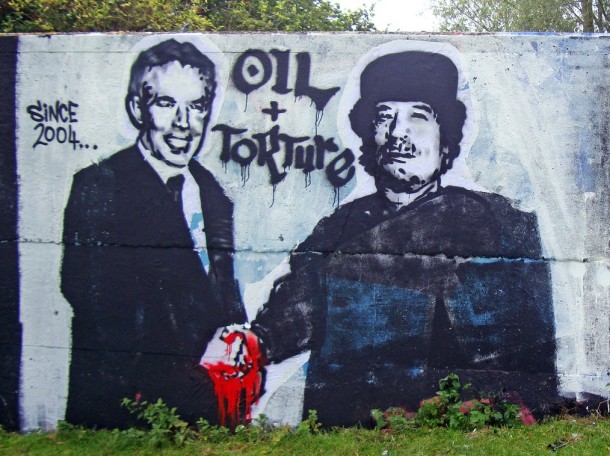
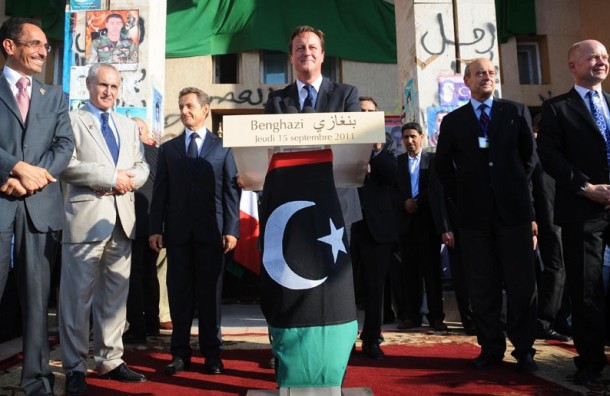
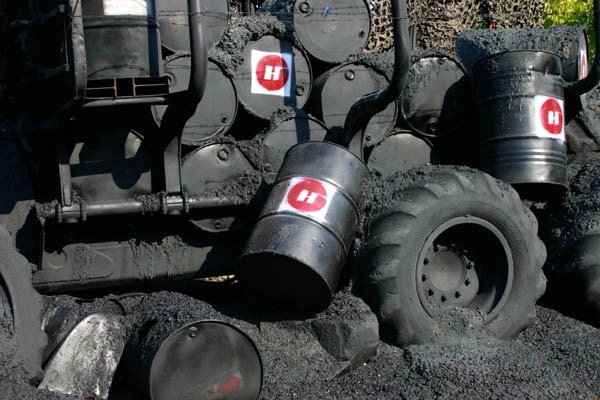
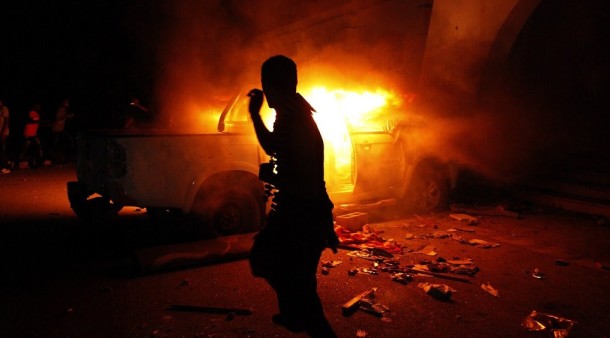
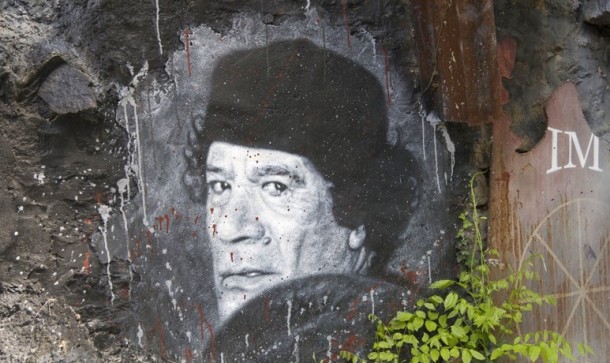
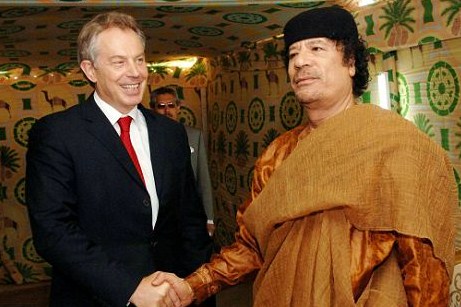
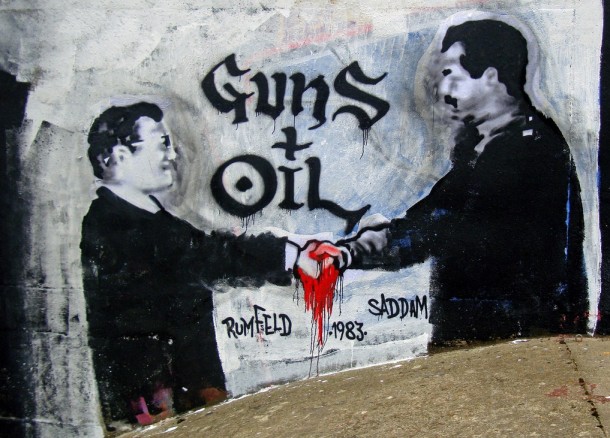
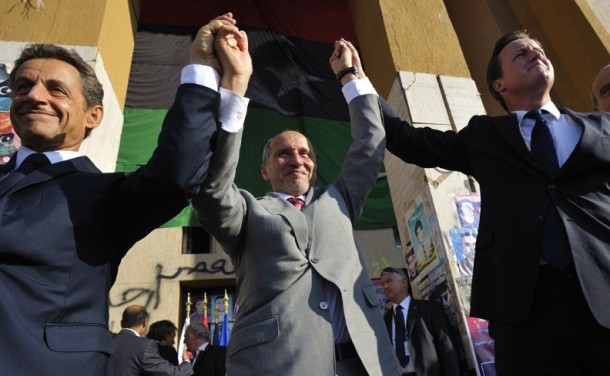
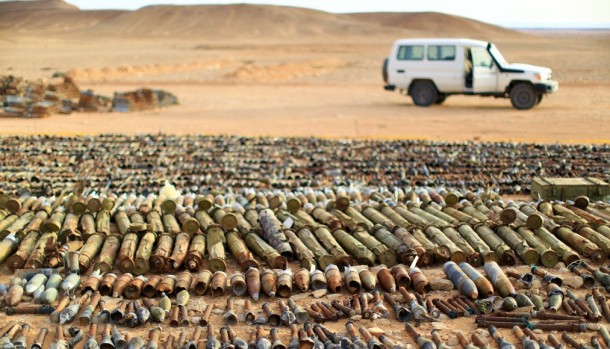
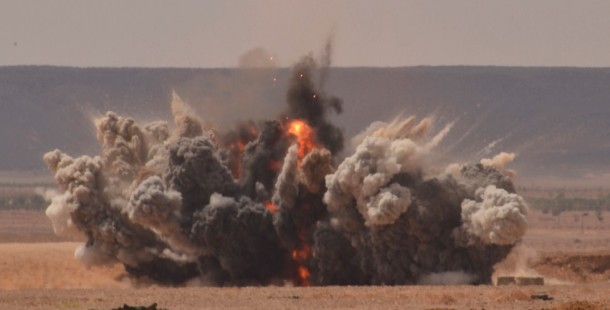
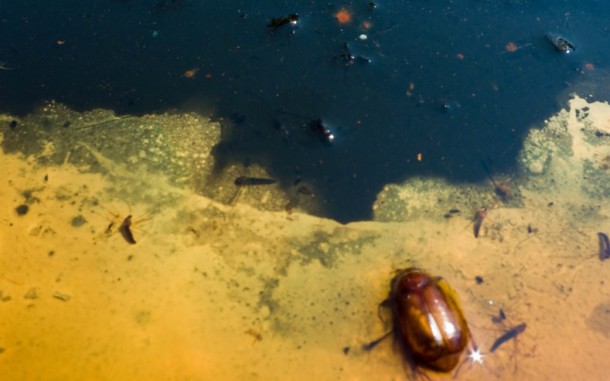











8 Responses to Benghazi: The Insecure Crossroad of Oil, Mercenaries and Jihadists
You must be logged in to post a comment Login